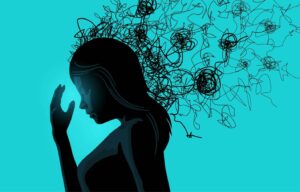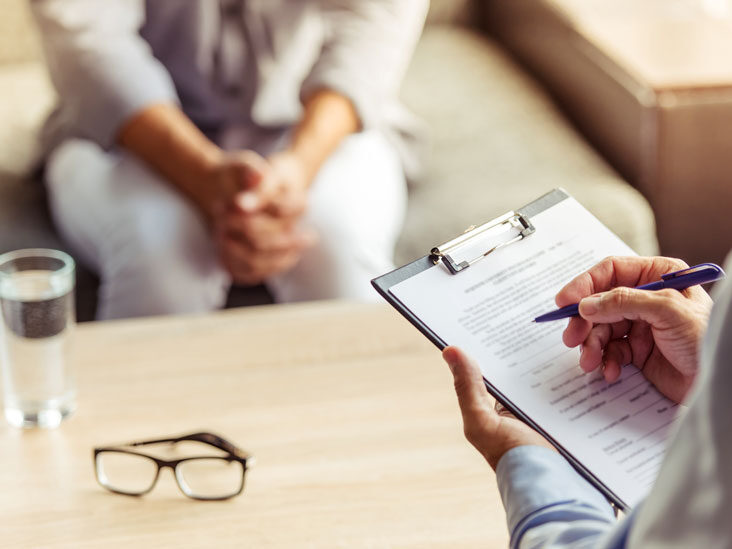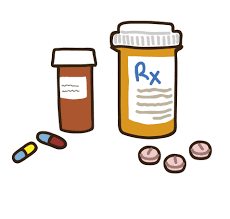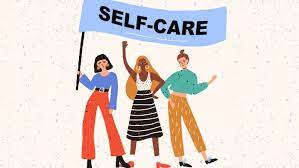Depression is a serious mental illness that can cause significant impairment in daily functioning. According to the National Institute of Mental Health, major depressive disorder (MDD) affects approximately 16 million American adults each year. While there is no one-size-fits-all approach to treating depression, there are a number of treatment options available that may be effective for you. In this blog post, we will discuss the different types of treatments for major depressive disorders and what might work best for you.
Contents
What Is Major Depressive Disorder?
 Major depressive disorder, also called clinical depression, is a mental health condition characterized by a persistent feeling of sadness and loss of interest. It can lead to a range of emotional and physical problems and can decrease your ability to function at work and home. Symptoms include insomnia, fatigue, weight loss or gain, slowed thinking, and suicidal thoughts.
Major depressive disorder, also called clinical depression, is a mental health condition characterized by a persistent feeling of sadness and loss of interest. It can lead to a range of emotional and physical problems and can decrease your ability to function at work and home. Symptoms include insomnia, fatigue, weight loss or gain, slowed thinking, and suicidal thoughts.
Major depressive disorder is one of the most common mental disorders in the United States. According to the National Institute of Mental Health, about 16 million American adults suffer from major depression each year.
There can also be many negative impacts of major depressive disorder on your life. The condition can lead to substance abuse, problems at work or school, and strained relationships. If you have major depression, you may also be at risk for developing other mental disorders, such as anxiety or bipolar disorder.
Treatment for major depressive disorder usually involves a combination of medication and therapy. The type of treatment that is best for you will depend on the severity of your symptoms, your personal preferences, and any other health conditions you may have.
If you are living with major depressive disorder, it is important to seek treatment from a mental health professional. With proper treatment, you can manage your symptoms and live a healthy and fulfilling life.
Major Depressive Disorder Treatment Options

Treating major depressive disorder often involves a combination of medication and therapy. The type of treatment that is best for you will depend on the severity of your symptoms, your personal preferences, and any other health conditions you may have.
Some people with major depression may only need to see a therapist for weekly talk therapy sessions. Others may need to take medication to help manage their symptoms. Some people may benefit from a combination of medication and therapy, while others may need more intensive treatment, such as hospitalization or day treatment programs.
No matter what type of treatment you receive, it is important to be open and honest with your mental health professional. Together, you can develop a treatment plan that works best for you and helps you live a healthy and fulfilling life.
Medication
 There are many different types of medication that can be used to treat the major depressive disorder. The most common type of medication is antidepressants. Antidepressants work by changing the levels of chemicals in your brain that control your mood.
There are many different types of medication that can be used to treat the major depressive disorder. The most common type of medication is antidepressants. Antidepressants work by changing the levels of chemicals in your brain that control your mood.
There are many different types of antidepressants, and it may take some trial and error to find the one that works best for you. Some people may need to try a few different medications before they find one that helps manage their symptoms.
It is important to talk to your doctor about any side effects you experience while taking antidepressant medication. Some common side effects include nausea, weight gain, sexual dysfunction, and headaches. If you experience any serious side effects, such as suicidal thoughts, it is important to seek medical help immediately.
Therapy
 Therapy is an important part of treatment for major depressive disorder. It can help you learn more about your condition and develop healthy coping skills.
Therapy is an important part of treatment for major depressive disorder. It can help you learn more about your condition and develop healthy coping skills.
There are many different types of therapy that can be used to treat major depression. The most common type of therapy is cognitive behavioral therapy, which helps you identify and change negative thinking patterns. Other types of therapy include interpersonal therapy, which focuses on your relationships, and psychodynamic therapy, which focuses on your past experiences.
Your therapist will work with you to find the best type of therapy for your needs. Together, you can develop a treatment plan that helps you manage your symptoms and live a healthy life.
Cognitive behavioral therapy (CBT)
Cognitive behavioral therapy (CBT) is a type of talk therapy that can be used to treat the major depressive disorder. CBT helps you identify and change negative thinking patterns that may contribute to your depression.
During CBT, you will work with a therapist to identify your negative thoughts and replace them with more positive ones. You will also learn how to manage stress and cope with difficult situations in healthy ways.
CBT usually lasts for 12-16 weeks, but some people may need longer-term treatment. If you are interested in CBT, ask your doctor or mental health professional if they can refer you to a therapist who specializes in this type of therapy.
Interpersonal therapy (IPT)
Interpersonal therapy (IPT) is a type of talk therapy that can be used to treat major depressive disorder. IPT focuses on your relationships and how they may contribute to your depression.
During IPT, you will work with a therapist to identify any relationship problems that may be contributing to your depression. You will also learn how to communicate better with others and resolve conflict in healthy ways. IPT is typically provided in 12-16 weekly sessions. IPT works by helping you to understand and change the patterns of thinking and behaving that may be contributing to your depression.
Exposure and response prevention therapy
Exposure and response prevention therapy (ERPT) is a type of cognitive behavioral therapy (CBT) that has been shown to be effective in treating OCD. ERPT works by helping you to gradually expose yourself to your fears and anxiety-provoking situations while teaching you how to respond in a more constructive way. This therapy can be done with a therapist or on your own.
Acceptance and commitment to therapy
Acceptance and commitment therapy (ACT) is a form of CBT that has been shown to be helpful in treating OCD. ACT works by helping you to accept your thoughts and feelings without trying to change them. This can be done by learning to observe your thoughts and feelings without judgment, allowing them to come and go without reacting to them. Commitment refers to taking action in line with your values, even in the face of difficult thoughts and emotions.
Self-care
 Another important part of treatment for OCD is self-care. Self-care is any activity that you do to take care of your physical, mental, and emotional health. Some examples of self-care activities include exercise, relaxation techniques, and healthy eating. Taking care of yourself can help reduce your symptoms of OCD and make it easier to manage them on a day-to-day basis.
Another important part of treatment for OCD is self-care. Self-care is any activity that you do to take care of your physical, mental, and emotional health. Some examples of self-care activities include exercise, relaxation techniques, and healthy eating. Taking care of yourself can help reduce your symptoms of OCD and make it easier to manage them on a day-to-day basis.
Exercises: One of the most important things you can do for your mental health is to exercise regularly. Exercise has been shown to be an effective treatment for depression, anxiety, and stress. It can also help improve your sleep, energy levels, and overall mood.
Yoga: Yoga is a form of exercise that involves both the body and mind. Yoga can help to reduce stress, anxiety, and depression. It can also help to improve your flexibility, strength, and balance.
Meditation: Meditation is a practice that involves focusing your attention on the present moment. Meditation can help to reduce stress, anxiety, and depression. It can also help to improve your focus and concentration.
Eating a healthy diet: Eating a healthy diet is important for your physical and mental health. Eating a diet that is high in fruits, vegetables, whole grains, and lean proteins can help to improve your mood and reduce your symptoms of anxiety and depression.
Getting enough sleep: Getting enough sleep is important for your physical and mental health. Sleep helps to rejuvenate the body and mind, and it can also help to improve mood, concentration, and energy levels.
Making time for hobbies and activities you enjoy: It’s important to make time for things you enjoy doing. Doing things you enjoy can help to reduce stress, anxiety, and depression. It can also help to improve your mood and overall well-being.
Support Groups
 Support groups are a great way to connect with other people who are going through similar experiences. Also, Support groups can provide you with invaluable information and support, and they can be a great way to meet new friends. There are many different types of support groups available, so it’s important to find one that is right for you.
Support groups are a great way to connect with other people who are going through similar experiences. Also, Support groups can provide you with invaluable information and support, and they can be a great way to meet new friends. There are many different types of support groups available, so it’s important to find one that is right for you.
OCD treatment is not a one-size-fits-all approach, and what works for one person may not work for another. It’s important to work with your treatment team to find the best approach for you. With the right treatment and support, you can manage your OCD symptoms and live a full and productive life.
How To Choose From Major Depressive Disorder Treatment?
Choosing from the different types of major depressive disorder treatments can be daunting. How do you know what will work best for you? The first step is to understand the different types of treatment available. Medications, therapy, and self-care are all common treatment options for depression.
Your doctor can help you weigh the pros and cons of each type of treatment and make a decision about what’s best for you. After all, they know your medical history and can offer professional guidance. But it’s also important that you feel comfortable with your treatment plan.
If you’re not sure about a particular treatment, don’t hesitate to ask questions or seek out more information. The most important thing is finding what works best for you so that you can start feeling better.
When it comes to major depressive disorder treatments, there is no one-size-fits-all solution. But with the help of your doctor and a little trial and error, you can find a treatment that works for you. And once you start feeling better, you’ll be glad you made the effort.
Benefits of Major Depressive Disorder Treatment

There are many benefits to seeking treatment for Major Depressive Disorder. Treatment can help improve your mood, give you back your energy and motivation, help restore your ability to concentrate and make decisions, ease stress and anxiety, improve relationships, and increase your overall sense of well-being.
In addition to the direct benefits of treatment, there are also indirect benefits. For example, people who receive treatment for depression are less likely to abuse alcohol or drugs. They’re also less likely to experience job loss, financial problems, or social isolation.
Treatment can be very effective in managing Major Depressive Disorder. In fact, over 80% of people who receive treatment show improvement within a few weeks. And while there’s no cure for depression, most people who receive treatment can manage their symptoms and live full, productive lives.
If you’re struggling with depression, don’t wait to get help. Talk to your doctor or a mental health professional about your options for treatment. The sooner you get started, the sooner you can start feeling better.
Conclusion
Major depressive disorder is a serious condition that one can definitely treat with medication, therapy, or a combination of the two. If you are struggling with depression, it is important to seek professional help. Talk to your doctor about your options and find a treatment plan that works best for you.
Depression is a serious but treatable illness. With proper diagnosis and treatment, most people with depression will improve. However, some people may experience more severe forms of depression that require hospitalization. Sometimes, people with severe depression may also need to take medication for a while. If you or someone you know is struggling with depression, there are many resources available to help.
Hope this article was of help to you! If you are suffering from depression, you may seek help from Therapy Mantra. We have a team of highly trained and experienced therapists who can provide you with the tools and skills necessary for overcoming depression. Contact us today to schedule an online therapy or download our free Android or iOS app for more information.


